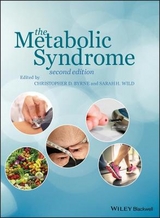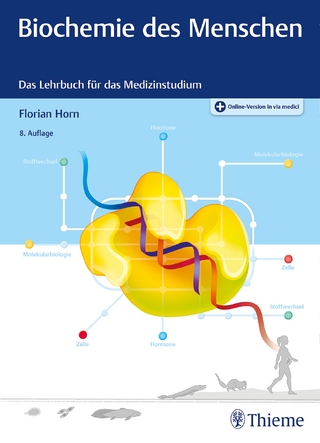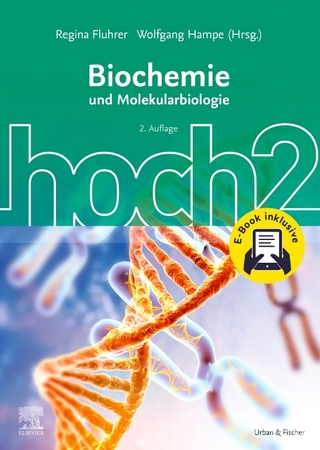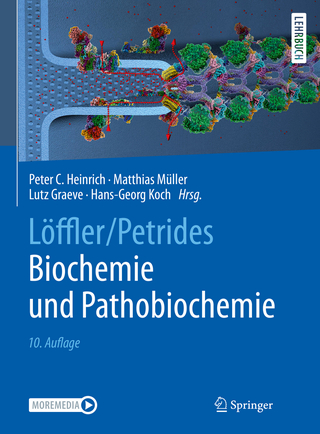
The Metabolic Syndrome
John Wiley & Sons Ltd (Verlag)
978-0-470-02511-6 (ISBN)
- Titel erscheint in neuer Auflage
- Artikel merken
This is an award-winning title! It is highly commended certificate of the 2006 BMA medical book competition. The metabolic syndrome is a highly prevalent condition that affects a considerate number of adults and has become increasingly relevant to many disciplines in clinical medicine. This title examines the pathogenesis of metabolic syndrome and its relationship with diabetes and coronary heart disease (CHD), and reviews different treatment options. It covers all aspects of the metabolic syndrome and its constituent diseases. The editors of this key title, Christopher D. Byrne, a diabetologist and clinician scientist, and Sarah H. Wild, an epidemiologist and public health physician, have brought together a group of authors, all of who are leading researchers in their field.The editors and chapter authors of this outstanding reference work have each contributed to chapters addressing 'hot topics' relevant to the metabolic syndrome.
The state-of-the-art chapters range from aetiology to pathogenesis, complications and treatment, addressing subjects such as the developmental origins of the metabolic syndrome, oxidation, inflammation and exciting new areas such as non-alcoholic steatohepatitis and adipocytokines. "The Metabolic Syndrome" is an invaluable resource for all clinical researchers and physicians requiring detailed up-to-date information on the metabolic syndrome. It is helpful to further their own research or to treat and manage the syndrome and its complications. The book is also of interest for all health care professionals. From the reviews: '...an excellent collection of updated reviews...provides a valuable background for understanding many aspects of this fascinating cluster of risk factors...' - "New England Journal of Medicine".
Christopher Byrne trained as a physician and clinical scientist at Cardiff, Cambridge and Stanford Universities. After Medical Research Council clinical science fellowships he was appointed Professor of Endocrinology & Metabolism at Southampton University Hospitals Trust, UK. He is an academic diabetologist with clinical and molecular research interests in the pathogenesis of the metabolic syndrome, and the mechanisms linking metabolic syndrome with type 2 diabetes and cardiovascular disease. His publications span a range of disciplines from epidemiological to gene expression studies. Sarah Wild trained in medicine in London and Cambridge and subsequently received training in epidemiology at Stanford University and the London School of Hygiene and Tropical Medicine. She is currently senior lecturer in epidemiology at the University of Edinburgh. Her research interests include the global burden of diabetes and metabolic syndrome and cardiovascular epidemiology.
Preface. List of Contributors. 1. The Global Burden of the Metabolic Syndrome and its Consequences for Diabetes and Cardiovascular Disease (Sarah H. Wild and Christopher D. Byrne). Introduction. Definition of the metabolic syndrome. Available data on prevalence of the metabolic syndrome. Factors that influence prevalence of the metabolic syndrome and variation between populations. Interpretation of data on prevalence of the metabolic syndrome. Summary of available data. Pathogenesis of the metabolic syndrome. Consequences of the metabolic syndrome. Conclusions. References. 2. Ethnicity and the Metabolic Syndrome (Nita G. Forouhi). Introduction. The metabolic syndrome and ethnicity. Epidemiology of ethnic differences in the risk for cardiovascular disease. Association between the metabolic syndrome, cardiovascular disease and ethnicity. Potential mechanisms for ethnic differences in the metabolic syndrome. Lessons and challenges of study of ethnicity in terms of disease risk. Clinical implications. Conclusions. References. 3. Developmental Origins of Vascular Dysfunction and Disease (Simon Cunningham and Mark Hanson). Introduction. Endothelial cell function. Endothelial dysfunction. Epidemiology. Experimental evidence. Opportunities for intervention and screening. Conclusions. References. 4. Developmental Origins of Insulin Resistance and Type 2 Diabetes (Roselle L. Cripps and Susan E. Ozanne). Introduction. Thrifty phenotype hypothesis. Foetal insulin hypothesis. Human studies. Animal studies. Hormonal insults. Surgical intervention. Nutritional models of early growth restriction. Conclusions. References. 5. Recent Progress in the Identification of Genes Predisposing to the Metabolic Syndrome (Timothy M. Frayling, Kirsten J. Ward and Michael N. Weedon). Introduction. Genes known for many of the monogenic components of the metabolic syndrome. Genetic component to common diseases of the metabolic syndrome: genes have proved difficult to find compared with monogenic diseases of the metabolic syndrome. Finding the genes that predispose to diseases of the metabolic syndrome: to improve understanding of the aetiology and treatment. Improved clinical resources, new technology and the human genome project: helping the quest to find genes influencing metabolic syndrome diseases. Genes known to alter the risk of metabolic syndrome diseases. Conclusion. References. 6. Atherothrombosis and the Metabolic Syndrome (Emma J. Dunn and Peter J. Grant). Introduction. The metabolic syndrome: interaction with coagulation and fibrinolysis. Insulin resistance and endothelial dysfunction. The haemostatic mechanism. The haemostatic mechanism and insulin resistance. Plasminogen activator inhibitor-1. Tissue plasminogen activator. Factor VII. von Willebrand factor and factor VIII. Fibrinogen. Factor XII. Factor XIII B-subunit. Platelets and the metabolic syndrome. Summary and conclusions. References. 7. Oxidative Stress, Insulin Resistance and Cardiovascular Disease (Antonio Ceriello). Introduction. From overfeeding to insulin resistance: the role of oxidative stress. Oxidative stress as a common pathogenic factor for the dysfunction of beta and endothelial cells. From insulin resistance to impaired glucose tolerance: the role of oxidative stress. From impaired glucose tolerance to diabetes and endothelial dysfunction. The possible link between oxidative stress and inflammation in insulin resistance, diabetes and cardiovascular disease. Oxidative stress as the connection between nutrition overload and diabetes and related cardiovascular complications: therapeutic implications. References. 8. Inflammation, Cardiovascular Disease and the Metabolic Syndrome (Dan Ziegler). Introduction. Role of inflammation in atherosclerosis. Relation between inflammation and endothelial function in humans. Role of acute-phase response in atherosclerosis. Is C-reactive protein mechanistically linked to atherosclerosis? Inflammatory markers as predictors of cardiovascular disease. Inflammation and insulin resistance. Inflammatory markers as predictors of the metabolic syndrome and its components. Lifestyle and drug interventions. References. 9. Adipocytokines and the Pathogenesis of the Metabolic Syndrome (Ulf Smith and Xiaolin Yang). Introduction. Adipocytokines and the metabolic syndrome. Summary and perspective. References. 10. Peripheral Arterial Disease (Lorna Watson and Gerry F. Fowkes). Introduction. Definition and pathogenesis of peripheral arterial disease. Clinical spectrum. Descriptive epidemiology. Relation of peripheral arterial disease to ischaemic heart disease and stroke. Risk factors for peripheral arterial disease in relation to the metabolic syndrome. The metabolic syndrome and peripheral arterial disease. Conclusion. References. 11. Non-alcoholic Steatohepatitis (Mohammed H. Ahmed and Christopher D. Byrne). Introduction. Aetiology. Diagnosis. Pathogenesis. Treatment. References. 12. Polycystic Ovary Syndrome (Naveed Sattar and Richard Fleming). Introduction. Insulin resistance in polycystic ovary syndrome and its role in reproductive abnormalities. Insulin resistance and metabolic features in women with polycystic ovary syndrome. Mechanisms to lessen diabetes and vascular risk in women with polycystic ovary syndrome. Future research questions in relation to long-term diabetes and vascular risk in polycystic ovary syndrome. Conclusion. References. 13. Nutrition: its Relevance in Development and Treatment of the Metabolic Syndrome (Jim Mann and Kirsten McAuley). Introduction. Weight loss and energy balance. Dietary fat and insulin sensitivity. Dietary fibre and the glycaemic index. Dietary patterns. Conclusions. References. 14. Growth Hormone, Exercise and Energy Expenditure in the Metabolic Syndrome (Cathy M. McHugh and Richard I.G. Holt). Introduction. Description of growth hormone/insulin-like growth factor axis. The growth hormone/insulin-like growth factor-I system and the metabolic syndrome. Exercise and the metabolic syndrome. Therapeutic potential of the growth hormone/insulin-like growth factor-I axis. Conclusion. References. 15. Treatments for the Metabolic Syndrome (Markolf Hanefeld and Frank Schaper). Introduction. Targets for treatment. Treatment by lifestyle modification. Medical treatment of the metabolic syndrome. Polypharmacy in the treatment of the metabolic syndrome. Conclusions. References. Index.
| Erscheint lt. Verlag | 9.9.2005 |
|---|---|
| Reihe/Serie | Practical Diabetes |
| Zusatzinfo | Illustrations |
| Verlagsort | Chichester |
| Sprache | englisch |
| Maße | 175 x 251 mm |
| Gewicht | 950 g |
| Themenwelt | Medizin / Pharmazie ► Medizinische Fachgebiete |
| Studium ► 1. Studienabschnitt (Vorklinik) ► Biochemie / Molekularbiologie | |
| ISBN-10 | 0-470-02511-5 / 0470025115 |
| ISBN-13 | 978-0-470-02511-6 / 9780470025116 |
| Zustand | Neuware |
| Haben Sie eine Frage zum Produkt? |
aus dem Bereich



